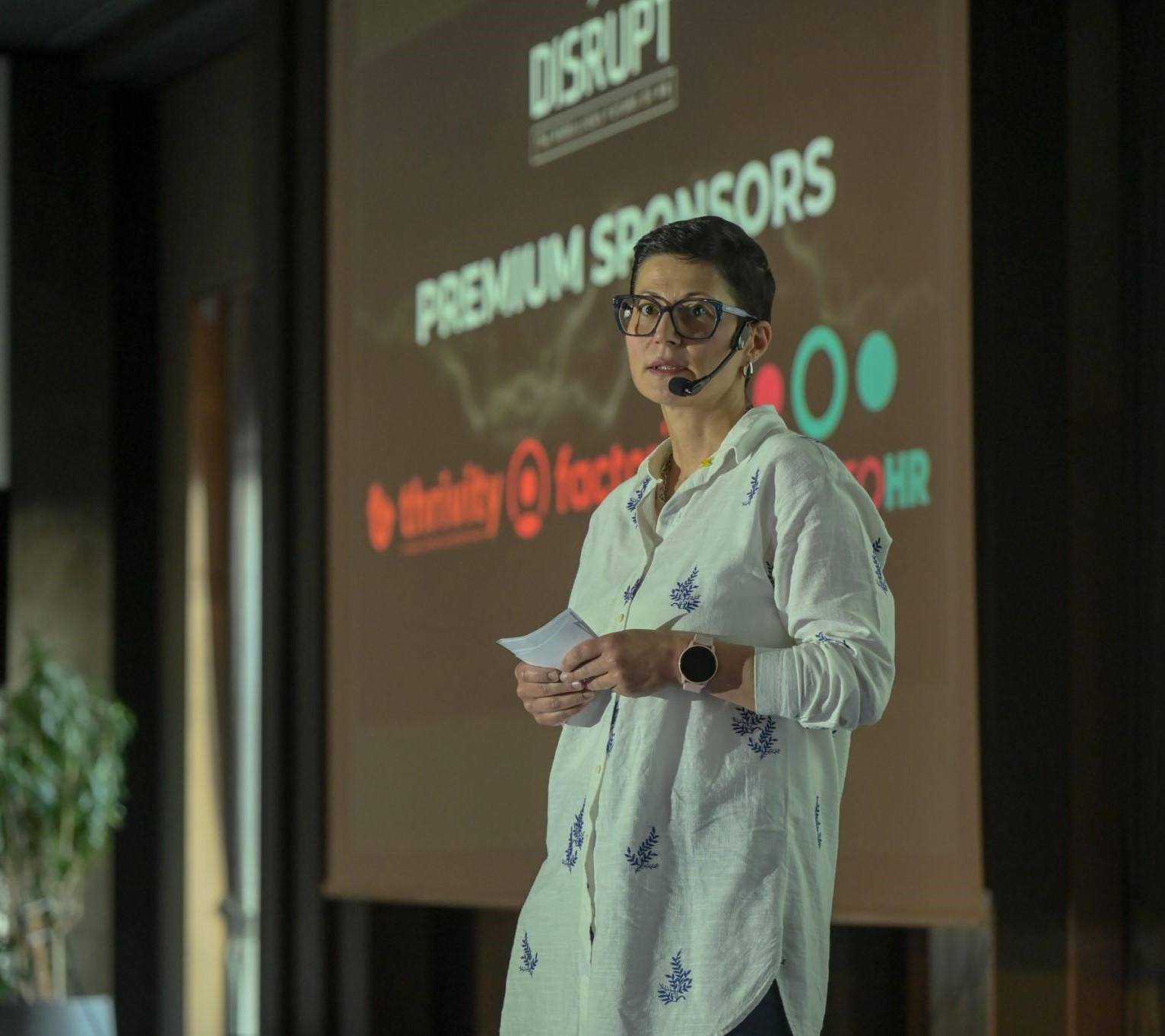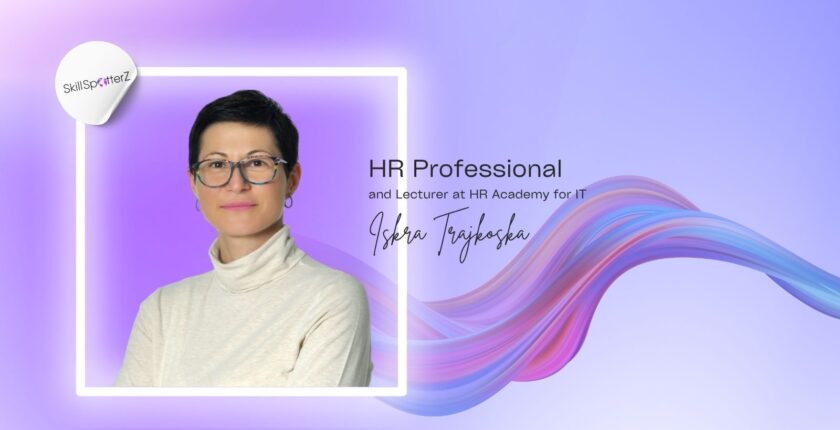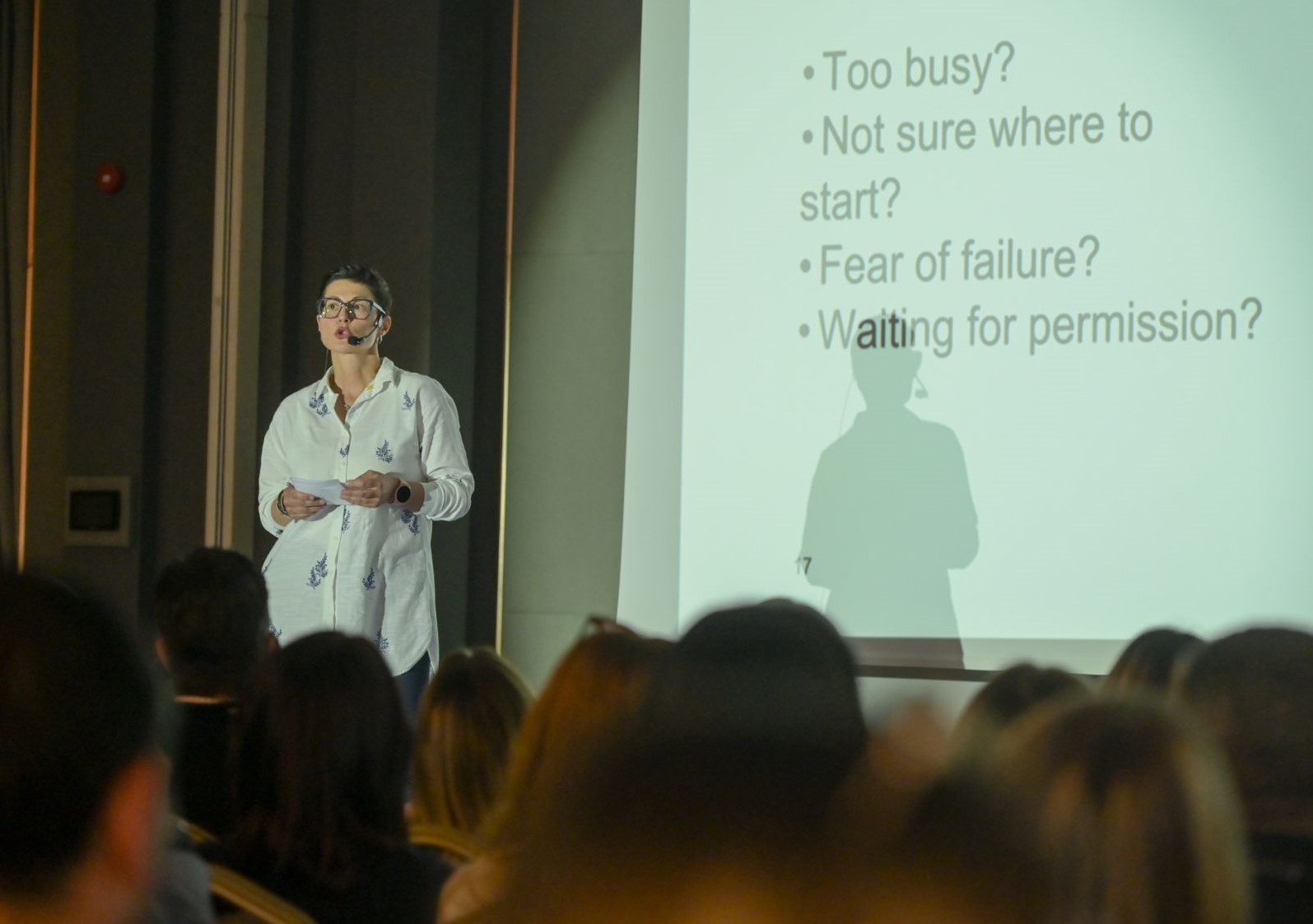Hiring Globally and Building Remote Teams: Insights From HR Leader Iskra Trajkoska
Meet Iskra
 Iskra Trajkovska is an experienced HR leader with over 20 years of experience helping companies build resilient, people-first organizations — from startup HR departments to enterprise systems like SAP and Personio.
Iskra Trajkovska is an experienced HR leader with over 20 years of experience helping companies build resilient, people-first organizations — from startup HR departments to enterprise systems like SAP and Personio.
In this interview, she shares her insights on remote hiring, regional workforce strengths, compliance pitfalls, and what global employers should know before expanding to the Balkans.
At SkillSpotterZ, we spotlight creative minds like Iskra, in order to help Companies and Remote Talent grow together, and hear real talk and insights about the industry.
So, let’s dive into Iskra’s perspective…
💬 Who is Iskra, both professionally and personally? Does your passion for HR influence your life outside of work, or do you keep those worlds separate?
Professionally, I have been passionate 360 HR for the past 20 years.
Currently am covering the role of HR and Admin Manager in an IT company.
I love working with people, especially supporting them through their professional development process.
Personally, I don’t really separate my passion for HR from the rest of my life.
I bring the same empathy, structure, and curiosity into my relationships as I do at work. I believe in fairness, open communication, and helping others grow — whether I’m in the office or not. HR isn’t just my job; it’s how I see the world.
💬 From your perspective, what makes the Balkan workforce, particularly in Macedonia, appealing to global employers?
Good question. We have highly skilled professionals at a lower cost.
Although this has changed recently due to some “moves” in the IT industry.
Still, we have good, mature professionals fluent in the English language.
There’s also a talent for versatility.
The Balkan people, especially in Macedonia, are known for their adaptability, loyalty, and strong work ethic.
💬 What should international companies be aware of when opening an office or hiring remote teams in Macedonia or the Balkans?
First of all, they should be aware of all national legal, administrative, and tax considerations.
Then the infrastructure, the labor market and talent pool, the labor cost effectiveness (depending on the industry/domain), culture, and flexibility.
💬 What advice would you give to a company’s leadership team before launching a team in this region?
To be ready for hands-on leadership if they want to set their business on the right foot. And all other legal things they need to be aware of.
💬 Do you feel Macedonia has caught up to international HR standards — and are we ready to support global companies looking to hire here or build remote teams?
Yes. We have not only aligned with the international HR standards, but we are also implementing them actively.
As one of the Founders of the Macedonian HR Association and a former member of the Board, I can confirm that we are very thorough and active in this regard.
Remote First Culture & Compliance
💬 You’ve worked with international labor laws across Europe. What are some critical legal or compliance issues employers often overlook when hiring remote or freelance workers abroad?
Mainly the payroll and taxation withholding, then there is the local labor compliance, the right to work, and the legal immigration status.
💬 You’ve helped build remote-first work environments. What are the key ingredients for a healthy, productive remote culture — especially across multiple countries?
Trust and autonomy are the foundation of every remote-first environment.
Without this, we cannot start thinking about this kind of environment.
Then there is the open communication and transparent processes.
Developing an inclusive culture with knowledge sharing, strong leadership with strong empathy and clarity, and of cours,e work-life balance and well-being programs.
💬 How do you maintain a sense of inclusion and belonging for remote teams that span different cultures and time zones?
Everything that is designed and implemented should be designed for belonging, not just for communication.
We should foster peer-to-peer connection and communication, and maintain a culture of diversity.
💬 Many founders struggle with tracking performance in remote settings. What frameworks or KPIs have you seen work — without micromanaging?
Implementing OKRs is a very transparent way to track performance. Then the 360 feedback and SMART objectives.
Talent Development & Tech Industry Insights
💬 You’ve been a lecturer in an IT academy — what’s unique about building HR strategies in the tech industry?
Building HR strategies in the tech industry is uniquely dynamic—it is different from traditional sectors.
The talent market moves so fast, so HR has to move fast to follow.
Since it is dynamic, the skills evolve rapidly, so there must be continuous learning, and as HR, we must react fast.
There is the culture fit and retention as leverage, but also the remote-first, which demands new models of HR. HR is part of all processes and actions.
💬 From your experience, what do UK or German companies typically look for when hiring remote tech or support staff in this region?
Well, like any other company wanting to hire a remote team, first, they look into the strong technical skills.
Also, what is important is the communication and the cultural fit, especially in a people-first culture.
What is also important is the operational maturity, the performance, productivity, and all that. And of course, the legal clarity, the contracts, tax, etc.
💬 What are the most in-demand soft and hard skills that talent should focus on developing to work with international employers?
For the soft skills, I would say that clear communication, cooperation, problem-solving, and flexibility are always in demand.
I would also add leadership and influence, and cross-cultural communication.
From the hard skills, now there are the AI skills and Cloud computing, but also Microsoft Net, Java, JavaScript.. depending on the domain and the stack the investing company is working with.
Scaling, Systems & Strategies
💬 You’ve implemented systems like Personio, SAP-HR, and CultureAmp. For a growing startup or SME — what should they prioritize in an HRIS system?
I would say that they should define what is their pain point is in their HR processes and start from there.
Defining and drawing your HR processes, measuring them to see what value you are receiving as a value from them, is the starting point for every HRIS system you are implementing.
They should look for an HRIS that covers all their HR processes, but go one process by one, implementing the HRIS
💬 When scaling globally, what’s the right time to invest in structured HR processes — and how do you avoid over-complicating things too early?
Whenever you see that, there will be a benefit.
HR processes are internal and they are supporting processes for the company.
You just need to follow the company and act upon it.
But for that, the HR manager needs to be involved in the strategic processes and decisions.
They need to sit at the table with all the C-level executives to understand the business and support it.
💬 You’ve coached managers and led leadership programs. What traits do great leaders of distributed or global teams tend to have in common?
They all love people and working with people.
Also, there’s emotional intelligence and empathy. Without this, you cannot be a great leader.
Then, adaptability and clarity, resilience, and accountability.
💬 What advice would you give to founders managing people for the first time — especially when they’re working with freelancers or global remote employees?
Clarity over control is very important.
Clear job descriptions and deliverables to be set. Also defined KPIs and timelines.
There should be clear and respectful communication, and of course, respect and clarity of the legal and contractual aspects.
💬 You’ve led change management initiatives. What are some of the people-related challenges companies face when shifting from local to global hiring?
The biggest challenge was unclear role expectations.
Then unclear processes, especially in the communication, engagement in a remote setting.
Practical Takeaways from Employers
💬 How different is it to be an HR leader in a local Macedonian company vs. working with international companies headquartered outside?
Very. Macedonian companies are still “closed” when they should let HR be part of the strategic decisions.
Unlike the international ones, for them, HR is the change agent.
💬 What’s your advice for employers with global remote teams — how can they find an HR partner or advisor who truly fits their remote culture?
Headhunting is always a good option. Then the recommendations, and then engaging a recruiting company.
💬 For companies considering outsourcing or opening offices in Macedonia or the Balkans — should they do it? Why and what opportunities lie ahead?
Yes, of course, they should do it. Our talent market is very diverse, adaptive, and with a strong skill set.
We are responsible, accountable, and very much knowledgeable.
💬 Where do you see the future of global hiring heading, especially now with AI — and how can HR professionals or business leaders stay ahead of the curve?
By constantly learning, exploring, and adapting to the new methods of working. I consider AI as a helpful partner with HR to improve the job, to support the process, and to help save time.
Only if we use it wisely and smartly.
How to Connect and Work with Iskra
💬 What type of companies or clients do you usually help, and how can someone get in touch with you if they want to learn more or work with you?
I help all sorts of companies, from start-ups to big corporations. I am always available on my LinkedIn profile or at my email address, and here’s my SkillSpotterZ profile.




